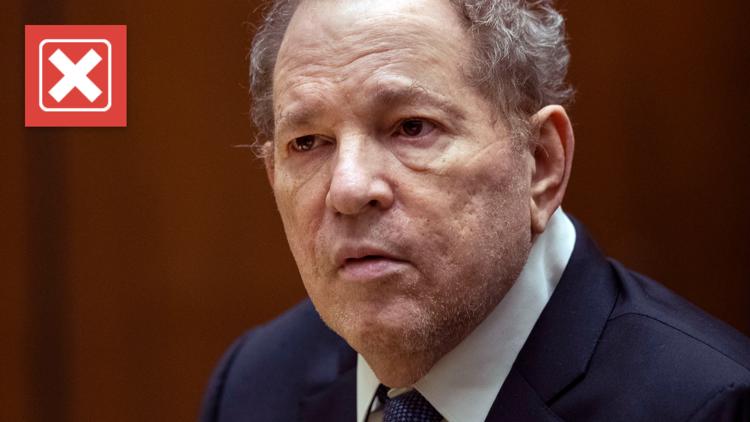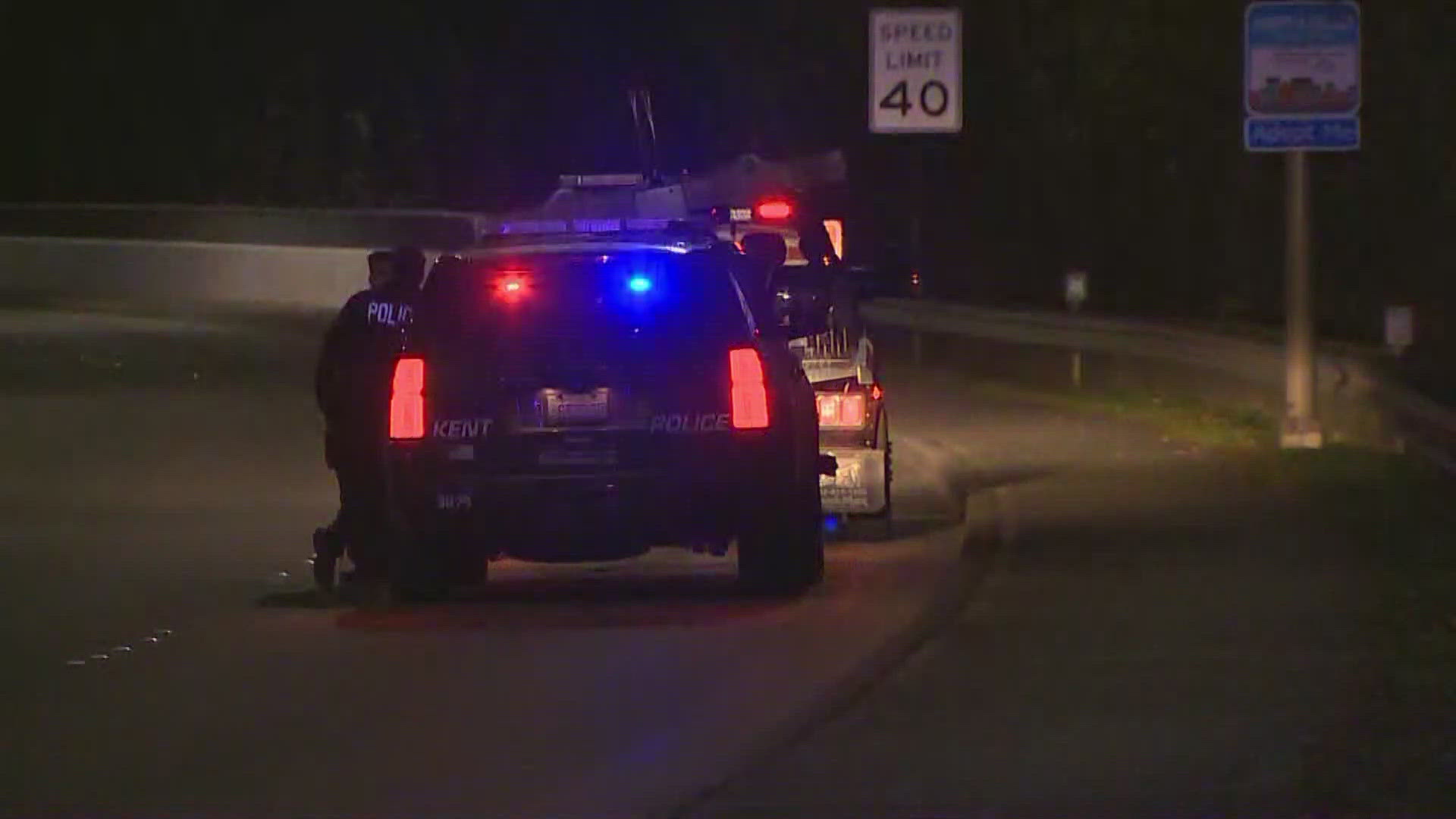On April 25, the New York Court of Appeals overturned film producer Harvey Weinstein’s 2020 rape and sexual assault conviction, determining the trial judge improperly allowed women to testify about allegations against the ex-movie mogul that weren’t part of the case. He was sentenced to 23 years in prison in that case.
Weinstein has been incarcerated at the Mohawk Correctional Facility in New York since March 2020.
People on social media quickly reacted to the news of his conviction being overturned. Some claim Weinstein has been, or could be, released from prison because the conviction was overturned.
THE QUESTION
Will Harvey Weinstein be released from prison because his New York conviction was overturned?
THE SOURCES
THE ANSWER
No, Harvey Weinstein won’t be released from prison because his New York conviction was overturned.
WHAT WE FOUND
Harvey Weinstein, 72, was sentenced to prison in two separate rape cases – one in Los Angeles in 2023 and another in New York in 2020.
Weinstein’s conviction in New York is the only one that has been overturned. This doesn’t change his Los Angeles conviction, which means he’ll continue to serve out the rest of his 16-year sentence stemming from that case.
In 2020, a New York judge sentenced Weinstein to 23 years in prison after he was convicted of sexually assaulting a production assistant and raping an aspiring actress. On April 25, 2024, the New York Court of Appeals overturned that conviction.
In 2023, a Los Angeles judge sentenced Weinstein to 16 years in prison stemming from a 2022 conviction of a separate rape and sexual assault of an Italian actor and model.
Weinstein was ordered to serve these two sentences consecutively, not concurrently. That means his 16-year sentence handed down in Los Angeles in 2023 was added to the 23-year sentence he received in New York, for a total of 39 years in prison.
When New York’s court of appeals overturned the conviction on April 25, they only overturned the case tried in New York – not the Los Angeles case. They are different jurisdictions.
In its opinion overturning the case, the state Court of Appeals said the court found that “the trial court erroneously admitted testimony of uncharged, alleged prior sexual acts against persons other than the complainants of the underlying crimes." The court's majority called this “an abuse of judicial discretion."
In a statement to the Associated Press, Manhattan District Attorney’s Office said it would “do everything in our power to retry this case.”
VERIFY reached out to the district attorney’s offices in both Los Angeles and in Manhattan, and did not hear back at the time of publication.
The Associated Press contributed to this report.



